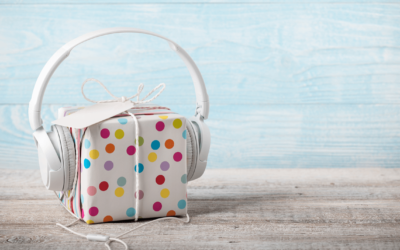There are six main types of questions in the IELTS listening test. Each one tests a slightly different sub-skill. This is done deliberately by the exam owners (The British Council, Cambridge and IDP) as the listening sub-skills relate directly to the situations you might face if you are going to study, work, or live in an English-speaking country.
So I am about to give you strategies and tips on how to tackle each type of question. Practice these strategies until they become ‘second nature’, meaning until you follow the strategies without even thinking about it. Once you have mastered and practiced these step-by-step procedures, you should be able to maximize your band score with your current level of listening ability.
Strategies and Tips for 6 types of questions:
- Multiple Choice
- Matching
- Plan/ Map/ Diagram Labeling
- Table/ Form/ Note/ Summary/ Flow-chart Completion
- Sentence Completion
- Short-answer Questions
General Strategies:
- Read the instructions carefully; they may be different from one test to another
- Check the word limit (number of words/ numbers required). Any candidate whose response exceeds the word limit will be penalized. For example, if you are asked to complete a sentence using NO MORE THAN TWO WORDS, and the correct answer is ‘leather jacket’, ‘jacket made of leather’ would be incorrect.
- Read the questions before you listen
- Look out for title or heading of the set of questions; it helps you form a general idea of what you are going to hear.
- Underline key words in the questions and think about possible synonyms or paraphrases. This is because what you hear will most likely not be exactly the same as is written on the exam paper as that would be too easy.
- Be careful with spelling and grammar:
- singulars / plurals (e.g., National Holiday(s), email(s), place(s), glass(es), etc)
- tenses
- Beware of question order – often you have a table to complete, and sometimes a diagram or chart. The questions will not necessarily go from left to right, so check the progression carefully otherwise you will get lost and confused.
- Look at two questions at once – there are two reasons for doing this. Firstly, some questions may have the answers close together in one sentence so you could miss one if you only look at one question at a time. Also, it is possible that you will miss an answer – if you are just looking at one, you may not know that you missed it. If you are also looking at the next, you’ll see that it has moved on.
- Concentrate. If you lose focus, you will miss answers. Don’t let that happen to you. Practice full tests at home to build up your ability to concentrate.
- If you miss an answer, just move on. Otherwise, you waste your time and lose your place in the recording. Do not let missing one question cause you to panic, stay focused.
- If you cannot answer a question, make an educated guess and attempt it. There are no penalties for incorrect answers.
- For paper-based test, write your answers on the question paper as you listen. At the end of the test, you will have 10 minutes to transfer your answers to the answer sheet. It is essential to do this because nothing you write on the question paper will be marked.
Listening Tips:
- Common traps/ distractions:
- Often times, speakers give answers but then correct themselves, so the first answer that looks right may actually be wrong. Here is an example: “How much does it cost for an adult ticket?” / “It’s $50 per person.” / “Oh, since you’re already a member, it costs $45.” The answer was $50 but then the speaker changed it to $45. So always keep listening and be ready for the speaker to change their mind.
- For Multiple Choice questions, speakers may mention all options but they might not be correct. You need to listen closely until the speaker finishes. Refer to IELTS Listening Multiple Choice to understand this tip.
- Pay attention to transition markers:
-
- A short pause
- Change of intonation/ emotion
- Change of topic: anyway/ by the way/ wait/ speaking of …
- Change of speaker: what about (someone)?/ (name), what do you think about …?
- Be aware of connected speech. This is when the sounds of one word lead into the next word so that words are said almost as one. For example, ‘Triple A’ is pronounced ‘Triplay’. It almost sounds like one word and if you are not aware of this then you will find listening to native speakers difficult.
Notes:
- How words and numbers are calculated:
- “No more than two words and/ or a number”. This means you can write:
- One word
- Two words
- A number
- One word and a number
- Two words and a number
- A year “1950” is considered one number.
- A hyphenated word “part-time” is considered one word.
- A compound noun which is not hyphenated “tennis shoe” is considered two words.
- Contracted word such as “I’m or I’ll” will not be tested, so there is no need to worry about them.
- “No more than two words and/ or a number”. This means you can write:
- The answer must be exactly the same as what you hear from the recording. You must NOT change or reformulate the words
- Listen for plurals: A great many IELTS students have difficulty hearing the plural “s”. There is no half point for each answer, so if the correct answer is “experiments” and what you have is “experiment”, you receive no mark for the question.
- If the question asks you to complete the note ‘in the…’ and the correct answer is ‘morning’, note that ‘in the morning’ would be incorrect; the correct answer is ‘morning’.
- “at the hospital” or “hospital”: Should you write the article and preposition? Your answer will depend on the type of question you have. If you are completing the sentence, for example:
- The best place to meet is … => the answer must be grammatically correct so you need “at the hospital.”
- If the question is a note or form completion, such each 1) PLACE: … => the answer can be just one word (with or without the article) “hospital” or “the hospital” (if two words are possible).
- Writing letters or words: If you get a multiple-choice question/ matching/ labeling with options, it will ask you to write down the letter as your answer. If the answer is B, you must write B on your answer sheet, not the words. The words would be marked wrong because the instructions ask you to write a letter, not a word.
- Capital letters: You can write your answers using CAPITAL or lower-case letters. However, using all CAPITAL LETTERS is recommended as it is easier to read.
- Spelling: IELTS accept either British English or American English spelling. That being said, you can’t mix them (use both) and must have the correct spelling to get a point and have the answer marked correct.
- Don’t worry about spelling while you are listening because you don’t have time to concentrate on spelling. You need to concentrate on listening to the recording and following the questions.
- Check your spelling when you transfer your answers to the answer sheet. That is the time to check and make sure everything is correct. (This is for paper-based test and doesn’t apply to online test.)
- The recording is played ONCE only. You will not hear it a second time.
- 2020 Update: Starting from January 4, the IELTS Listening test will have the following changes:
- The word “Sections” is changed to “Parts”. This will not affect the test format, but you should be familiar with the new names.
- There is no example given in Part 1. Usually there would be an example answer for you to listen to at the start of the recording. However, this example has now been removed. Therefore, you must listen attentively from the start of the recording.
- There are no page number references. But there are still references to question number. Although this is no big change, it is something to be aware of.
IELTS Listening Preparation Tips:
- Practice the pronunciation of letter and number Often words are spelt out in the test by a speaker and numbers are read out, so make sure you can recognize how different letters sound in different accents, not just words.
- Practice multitasking. You must be able to read the questions, listen for the answer, take important notes, and write down words all at the same time.
- Practice listening to speakers of different accents. IELTS will use speakers from Britain, America, Australia, New Zealand and Canada so make sure you practice listening to all of those accents. TED is a great place for finding those accents. TED lectures may be useful as they provide a transcription so you can check your comprehension.
- Practice active listening. When you do listen to English if you are not doing a practice test then make sure you are being ‘active’ in your listening. Just sitting in front of a television watching an English program is not really going to improve your listening skills. You need to be actively engaged in the process. At the very least, you can try noting down key facts from what you are watching/listening to so that you make yourself focus, otherwise ‘passive’ practice will hardly help you improve at all and you will have wasted a lot of time.
Finally, it is important to realize that it may take some effort to follow the above tips and practice in this manner, but in the long run it will help you get the band score you need much more quickly. The choice is yours!




0 Comments